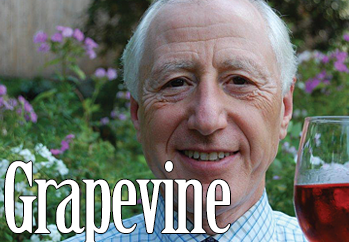A Perennial Debate Between Friends Surfaces Again
Opinion Advocates for ideas and draws conclusions based on the author/producer’s interpretation of facts and data.
 My longtime friend Rick and I have ongoing debates on many different aspects of wine. Many times, our debates focus on nuances rather than broad-scoped issues; at other times on our biases toward a particular wine region after one of our many couples wine adventures.
My longtime friend Rick and I have ongoing debates on many different aspects of wine. Many times, our debates focus on nuances rather than broad-scoped issues; at other times on our biases toward a particular wine region after one of our many couples wine adventures.
This week I’m reprising a column on a subject we have debated for years, with no clear winner.
The issue: Do fine wines from around the world age differently? Are certain wines stylized to reach their peak in the first few years of release or are they made to be cellared and aged to allow them to evolve into something different, something more refined or more complex?
Rick and I typically focus on the aging merits of Cabernet Sauvignon-based wines from California versus those from Bordeaux. Can an American wine that is produced to meet the American palate hold up, and improve, in the 20 to 25 ensuing years after release? Does a Bordeaux wine that is stylized to evolve and develop in the bottle age differently than its California competitor?
This is what a typical debate sounds like.
Nick: The French have been experimenting with crafting wines for centuries. They’ve taken what Mother Nature has handed them and created a wine that reflects their land and their heritage.
Through experimentation, they’ve developed an approach of blending grapes that best represents the unique natural elements of Bordeaux – its soil and microclimate. These wines are the heart and soul of the people of the land. California Cabernets, on the other hand, offer what many Americans seek in their wines and their lives – instant gratification, the here-and-now experience, an in-your-face attitude.
Comparing Bordeaux wines to California wines is like comparing Mozart to The Rolling Stones. They are both distinctive and have their individual appeal, but will The Rolling Stones’ style be popular in 200 years, as Mozart’s has been?
Rick: Nick, you’ve got it all wrong, my myopic buddy. The French have produced a wine that oftentimes lacks fruit and alcohol and is quite austere when released. Their “style” is a result of forced techniques to compensate for the less than stellar growing conditions in the Bordeaux region. California Cabernet Sauvignon-based wines benefit from superior growing conditions – more sunshine, more consistent weather and more suitable soil. These elements produce great wines. Several esteemed wine critics favor this style.
Nick: The wine critics? You’ve struck a sensitive chord, my misguided friend. Americans are overly influenced by critics’ palates. Why should I be influenced by someone whose palate and preferences may be totally opposite from mine?
A number of American critics seem to prefer fruit-forward, high-alcohol, low-acid, soft-tannic California Cabernet-based wines. By definition, these wines are difficult to age. There are no subtle nuances, no long-lasting tannins to provide backbone. The fruit tends to dissipate over time, leaving a high-alcohol wine with little finesse.
Rick: You’re missing the point, my Francophile sympathizer. Don’t you remember that famous wine tasting in Paris in 1976 when the Americans scored higher than their Bordeaux competitors?
I will accept a portion of your argument regarding the Bordeaux style you keep harping on. In the last few decades many high-end California producers have embraced this style and are producing wines that have more aging potential. And they cost about half of what the Bordeaux command. Wines like Opus One and Dominus are crafted in the Bordeaux style, so they can be enjoyed while young but will evolve as they age – the best of both worlds, like listening to The Rolling Stones.
Nick: Hogwash. The wines at the 1976 competition had hardly any age on them, and the California entrants were produced in the Bordeaux style. By the way, Opus One and Dominus are owned by two of the most famous French Bordeaux wineries.
Rick: OK, my unrelenting wine geek friend. I concede. History tells me that Bordeaux is a safer bet. But I’m also going to cellar a Cal Cab; then we’ll finally resolve our debate. And I’ll still be listening to The Stones.
Nick Antonaccio is a 45-year Pleasantville resident. For over 25 years, he has conducted wine tastings and lectures. Nick is a member and program director of the Wine Media Guild of wine journalists. He also offers personalized wine tastings. Nick’s credo: continuous experimenting results in instinctive behavior. You can reach him at nantonaccio@theexaminernews.com.
